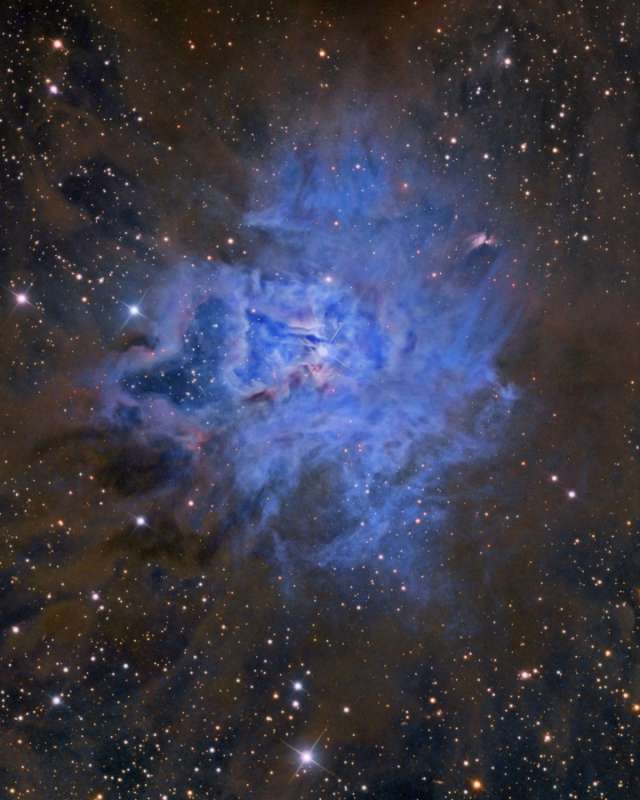Credit & Copyright: Tony Hallas
Explanation:
Like delicate cosmic petals, these clouds of interstellar dust and gas
have blossomed 1,300 light-years away in the fertile
star fields of the constellation Cepheus.
Sometimes called the Iris Nebula and dutifully cataloged as
NGC 7023 this is not the only nebula in the
sky to evoke the imagery of flowers.
Still, this
remarkable
image shows off the Iris Nebula's range of
colors and symmetries in impressive detail.
Within
the Iris, dusty nebular material surrounds a hot,
young star.
The dominant color of the brighter reflection nebula is blue,
characteristic
of dust grains reflecting starlight.
Central
filaments of the dusty clouds glow with a faint reddish
photoluminesence as some dust grains
effectively
convert the star's invisible
ultraviolet
radiation to visible red light.
Infrared observations
indicate that this nebula may contain
complex carbon molecules known as
PAHs.
The bright blue portion of the Iris Nebula is about six light-years across.
1999 2000 2001 2002 2003 2004 2005 2006 2007 2008 2009 2010 2011 2012 2013 2014 2015 2016 2017 2018 2019 2020 2021 2022 2023 2024 2025 |
Январь Февраль Март Апрель Май Июнь Июль Август Сентябрь Октябрь Ноябрь Декабрь |
NASA Web Site Statements, Warnings, and Disclaimers
NASA Official: Jay Norris. Specific rights apply.
A service of: LHEA at NASA / GSFC
& Michigan Tech. U.
|
Публикации с ключевыми словами:
NGC 7023 - Туманность Ирис
Публикации со словами: NGC 7023 - Туманность Ирис | |
|
См. также:
| |
